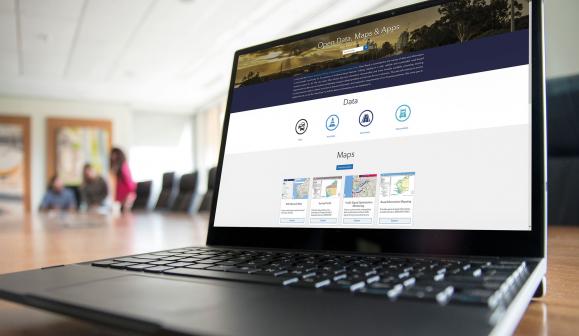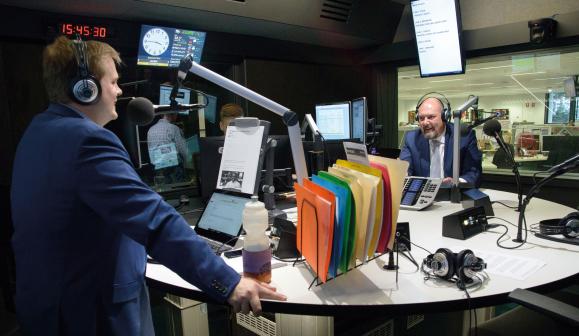Integrity Framework
Main Roads developed and implemented a new Integrity Framework in 2017-18 which consolidates and clarifies policies and processes in relation to fraud and corruption, gifts and benefits, conflict of interest, lobbyists, and misconduct. Features of the Integrity Framework include biennial fraud and corruption risk workshops, a detection program, and increased transparency through a central fraud and corruption incident register. The framework was developed in a consultative fashion and is aligned with Australian Standard 8001. The Integrity Framework is available to all employees via the iRoads intranet site.
Corruption Prevention
We have strategies in place to prevent the misappropriation of funds and inappropriate use of public property that includes a comprehensive annual audit plan to provide a balanced mix of financial, operational and information technology audits. In addition, Risk Management is considered an integral part of the annual business planning, project planning and the overall management of safety and environment. Risks are managed and monitored at all levels. Main Roads’ Integrity Framework clearly sets out the relevant policies and obligations for all employees with respect to preventing, mitigating and reporting instances of fraud and corruption.
Conduct and Ethics
All employees are expected to abide by Public Sector Code of Ethics, Main Roads Code of Conduct, Main Roads Values, Integrity Framework and Corruption and Crime Procedures and Guidelines. When a complaint or a report of alleged inappropriate behaviour or misconduct is received, management is required to act undertaking an initial review of the information or complaint. The outcome of this review determines the most appropriate action which may include:
- discipline
- grievance resolution
- performance management
- Corruption and Crime Commission Procedures
- improvement actions.
Staff may also report directly to the Corruption and Crime Commission or the Public Sector Commission.
Customer Privacy
Main Roads, as with all WA state government agencies, is not subject to the Privacy Act 1988 (Cth) and to date there is no equivalent statute in WA. However, the long standing practice has been to adhere, where possible, to the Australian Privacy Principles set out in Schedule 1 of the Privacy Act 1988.
We value the privacy of our customers. Our external website sets out clearly our privacy policy and discloses how data may be used when our website is accessed or through Bluetooth technology. We analyse data to assist in reducing congestion and helping the WA public make smart choices including when driving in peak hour traffic. Visitors to the Main Roads website can opt out of data analytics and Google advertising by following the link available on our privacy page. In relation to customer privacy, no attempt is being made to identify users or their browsing activities except, in the unlikely event of an investigation, where a law enforcement agency may exercise a warrant to inspect the service provider’s logs.
We also conduct projects during the year for which bespoke privacy policies may be created depending on the activity. For example the travel surveys pilot study that involved volunteers wearing GPS devices to collect specific data on travel patterns. The Addinsight Bluetooth system utilises Bluetooth detectors at signalised intersections on the road network to anonymously track Bluetooth enabled devices. The Bluetooth receivers picks up passing vehicles using car stereos and hand free kits and then calculates travel time along a segment of road. We can then use this system to help monitor travel time, excess delays and performance along a route.
If a customer subscribes to any services on our website, their email address and other personal information provided will be maintained on our mailing list. We log the following information for statistical purposes:
- the addressee’s server address
- the addressee’s top level domain name (e.g. .com, .gov, .au, .uk etc.)
- the number of times an email was opened
- the type of browser used.
Customers’ email addresses are confidential and used only for the purpose for which it has been provided. It will not be added to a mailing list unless you have given specific permission as part of the requested service. We will not use or disclose email addresses to any third party without explicit consent, nor will customers get any unsolicited bulk email or ‘spam’ with commercial offers or advertisements.
Public Interest Disclosures
We are committed to the aims and objectives of the Public Interest Disclosure Act 2003. We recognise the value and importance of contributions by staff to enhance administrative and management practices and strongly support disclosures being made by staff regarding improper conduct. The Public Interest Disclosure Guidelines are available online for all staff.
Conflicts of Interest
Our Code of Conduct requires all employees to ensure our personal, financial and political interests do not conflict with our performance or ability to perform in an impartial manner. Where a conflict of interest occurs, it should always be resolved in favour of the public interest rather than personal interest.
We have a Conflict of Interest and Gifts and Benefits register, maintained by the Manager Legal and Insurance Services. We consider conflict of interest to include:
- decisions that are biased, as a result of outside activities or private employment
- outside activities that result in less than satisfactory work performance or cause breaches of standards such as those relating to occupational safety and health
- information gained from official employment that is used for private gain
- government resources that are used for private gain
- government time that is used to pursue private interests
- acceptance of gifts or benefits
- disclosure of confidential information obtained during the course of duty
- breach of ethics
- the granting or receiving of favours for political, status, relationship, personal or business advantage
- actions jeopardising government and Main Roads policies and procedures
- actions which place Main Roads at risk.
Each Corporate Executive member signs a representation memorandum addressed to the Managing Director including a section on personal interests in our contracts. The Chief Finance Officer, Managing Director and Accountable Authority then sign a Management Representation letter to the Auditor General addressing categories including Internal Controls and Risk Management.
Other than usual contracts of employment of service, no senior officers, firms of which senior officers are members or entities in which senior officers have substantial interests, had any interests in existing or proposed contracts with us during the financial year.
Acceptance of Gifts and Benefits
Our Integrity Framework states that Main Roads employees and Contract Personnel engaged by Main Roads must not:
- be influenced, or perceived to be influenced, by the offer or receipt of gifts or benefits
- Engage in actions where a conflict of interest, or perceived conflict, arises in the course of their duty or contract obligations.
Where a Conflict of Interest, whether actual, potential or perceived, has been identified strict procedures including declaration to the Manager Legal and Insurance Services must be followed.



